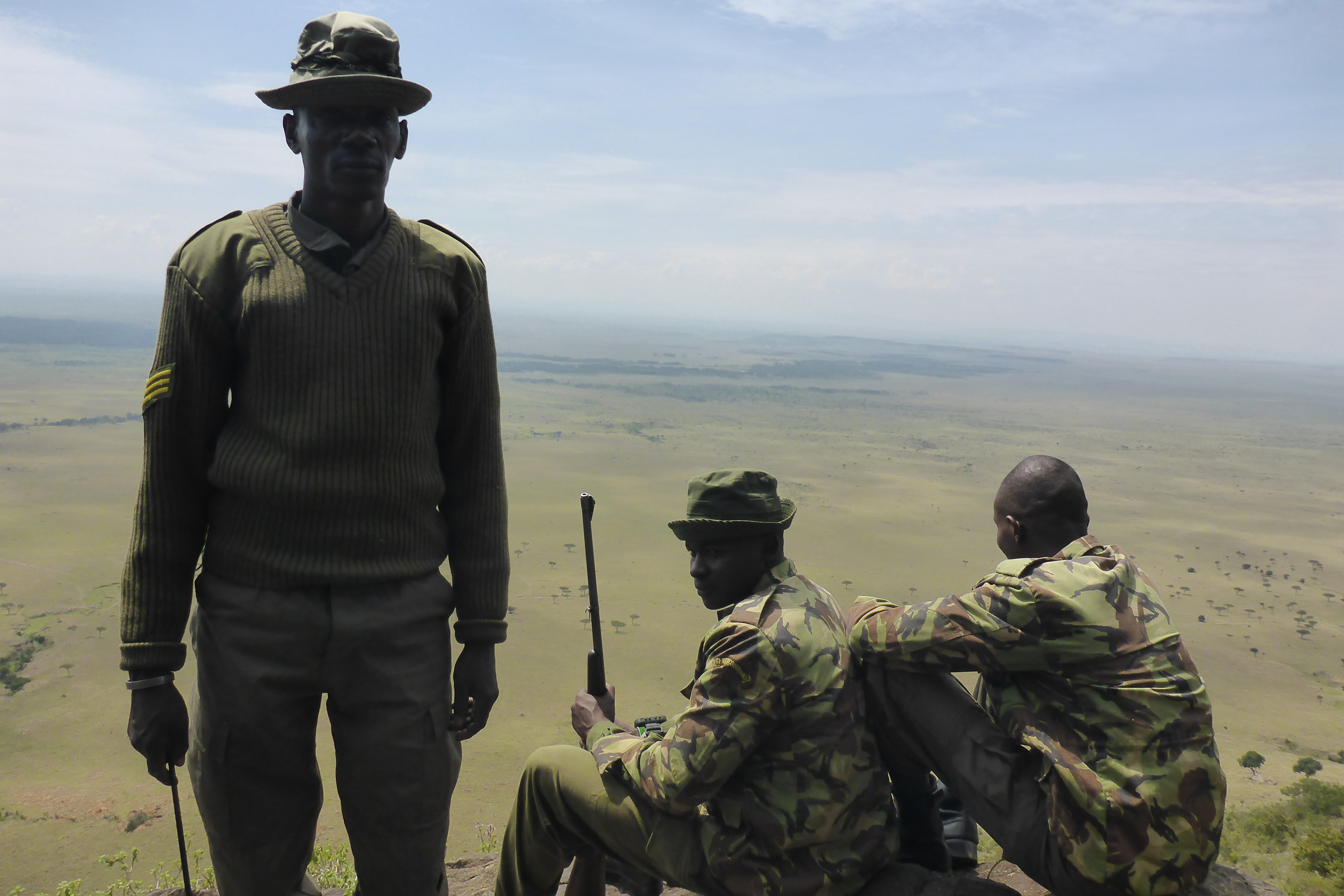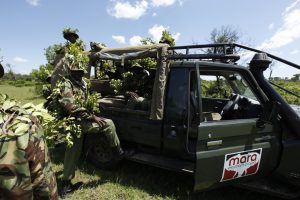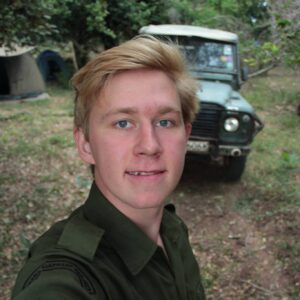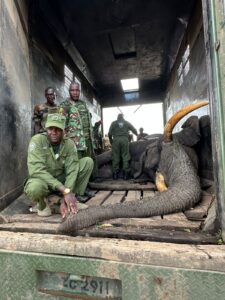David Goss has just completed high school in Denmark and is currently volunteering with Mara elephant project to gain work experience and understand what MEP rangers do on a daily basis. He’s spending weeks at a time with the rangers in the field. David’s first language is Danish and his first report submitted to mep is below.
In my week with the rangers at camp Kileleoni, we have been patrolling the hills by foot. We have also been using the vehicle to travel to the Rekero valley and patrol where the team had received information about elephant activity. Once there most of our patrolling has been on foot. We stayed on location at Ngoswani Hill for 3 days and never found an elephant. We didn’t see elephants from the Observation Point on the hill either.

On July 26 we drove to Ngoswani Hill because we heard there was elephant activity there from the local community members. We followed a path MEP Ranger Bravo found and ended up running into an area with 11 snares. We followed a path to the top of the hill to investigate further and found two men making charcoal and arrested and handcuffed them because we suspected they were the owners of the snares. The rangers interrogated them for half an hour, in Kiswahili and found that they were not the owner of the snares, but that the owner came early morning and late evening to check the snares.
We asked them to lead us to the owner’s house and found no signs of snares after searching the house from top to bottom. The rangers decided to let the two charcoal producers go, as there was no evidence that they hung up the snares. They where not punished for burning charcoal, as the rangers said, because it was not conservancy land.
The next morning (July 27) we tried to ambush the owner of the snares. We arrived at Ngosuani Hill at 6:50 a.m. and hid ourselves near the snares but no one showed up. So, we set up a motion camera and that same evening we went back to check but no one showed up and there were no sighs of people on the motion camera. So, we took down the snares and the camera and left and unfortunately we never found the owner of the snares so that they could be properly prosecuted.
On July 28 we received information about an injured elephant. We went to check out the lead, but there were no signs of elephant activity within the last two days. Then we received information about elephant activity near Tarquin Camp but again, no activity was found. What we did find on the way back from Tarquin Camp was a huge flock of Crowned Cranes; more than 40!
July 31 we were patrolling the south of the hill. We used a lot of time at an OP there and then further down the hill, we suddenly ran into an aggressive Black Mamba. We ran for our lives, and luckily no one was hurt. Worth a note: Bravo said that this hill was full of snakes.
 Overall, we could often hear the elephants near our patrol camp late at night and sometimes in the evening. During the day however the elephants where not on the hill because the waterholes had all dried out. I believe they went down to the valley in daytime.
Overall, we could often hear the elephants near our patrol camp late at night and sometimes in the evening. During the day however the elephants where not on the hill because the waterholes had all dried out. I believe they went down to the valley in daytime.
Their daily routine consisted of: Wake up and go for patrol around 8:30 a.m. They would then return to camp for lunch around noon. In the afternoon, the rangers were doing practical things like fetching water, washing clothes and digging a toilet. All these things are important for life in the bush.
My overall feeling about the team is that they are an all-around well-mixed team in terms of tribes and age. Bravo is a talented tracker, with efficient decision-making skills. They were all very welcoming and friendly.



